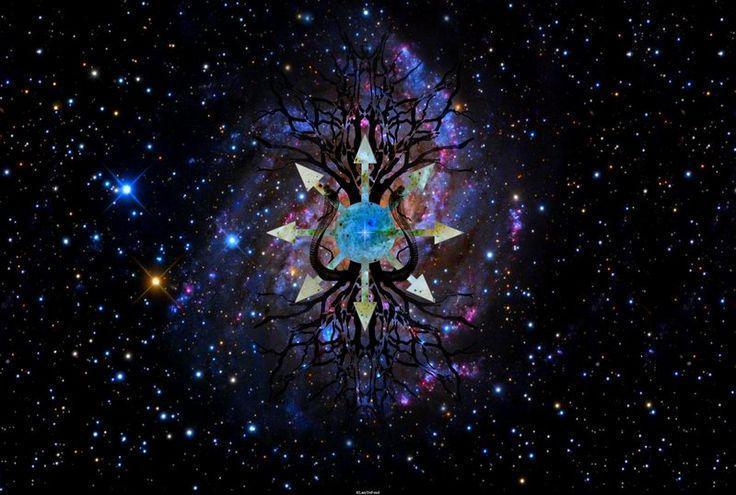All About Chaos Magick
All About Chaos Magick
Chaos magic is difficult to define because definitions are comprised of common components, and by definition chaos magic has none. In short, chaos magic is about using whatever ideas and practices are helpful to you at the moment, even if they contradict ideas and practices used previously.
Chaos Magic vs. Eclectic Systems
There are already a great many eclectic magical practitioners and religious practices. In both of these cases, a person borrows from multiple different sources to construct a new, personal system that speaks to them specifically.
In chaos magic, a personal system is never developed. What applied yesterday may be completely irrelevant today. All that matters today is what is useful today. Experience can certainly help a chaos magician in figuring out what would most likely be useful, but they are never confined by the concept of tradition or even of coherency.
To try something out of the ordinary, out of the box, outside of whatever paradigm you within which you normally work, that is chaos magic.
But if that result becomes in any way codified then it stops being chaos magic.
Power of Belief
The power of belief is important in many magical schools of thought today. The magician imposes his will upon the universe. As such, he has to be absolutely convinced that his magic will work in order for it to actually work. This approach to magic involves telling the universe what it will do, not just asking or hoping for it to do something.
This is particularly important for chaos magicians. They must believe in whatever context they are currently using, and then cast aside that belief later so that they are open to new approaches. Belief is not something you get to after a series of experiences. It is a vehicle for those experiences, self-manipulated in order to further a goal.
For example, an eclectic practitioners might employ an athame (a ritual knife) because they are drawing from systems that generally use athames. There are certain standard purposes for athames and so if the magician wants to do one of those actions it would make sense to use an athame, because they believe that is the purpose of an athame.
A chaos magician, on the other hand, decides that an athame will work for his current undertaking and embraces that “fact” with complete conviction for the duration of the working.
Simplicity in Form
Chaos magic is generally much less complex than ceremonial magic. Ceremonial magic depends on very specific beliefs about how the universe operates, how things relate to one another, how to approach various powers, etc. It often refers back to authoritative voices from antiquity, such as passages from the Bible, teachings in Kabbalah, or the wisdom of the ancient Greeks.
None of that matters in chaos magic. Tapping into magic is personal, willful and psychological. Ritual puts the worker in the right frame of mind, but it has no value outside of that. Words have no inherent power to them.
Major Contributors
Peter J. Carroll is frequently credited with “inventing” chaos magic, or at least the deliberate concept of it. He organized a variety of chaos magic groups in the late 1970s and 80s, although he eventually separated from them. His books on the subject are considered standard reading for those interested in the subject.
The works of Austin Osman Spare are also generally considered foundational reading for those interested in chaos magic. Spare died in the 1950s, long before Carroll started writing. Spare did not specifically address an entity called “chaos magic,” but many of his magical beliefs have been incorporated into the theory of chaos magic. Spare was particularly interested in the influence of psychology in magical practice at a time when psychology was just starting to be taken seriously.
Spare crossed paths with Aleister Crowley during his magical studies, and Crowley himself took some initial steps away from ceremonial magic, which was the traditional system of intellectual magic (i.e. non-folk magic) up to the 20th century. Crowley (like Spare) considered the traditional forms of magic bloated and encumbering. He striped away some of the ceremony and emphasized the power of will in his own practices, although his practices still most certainly formed a school of magic in their own right.
by Catherine Beyer For All About
Be the first to post a message!
